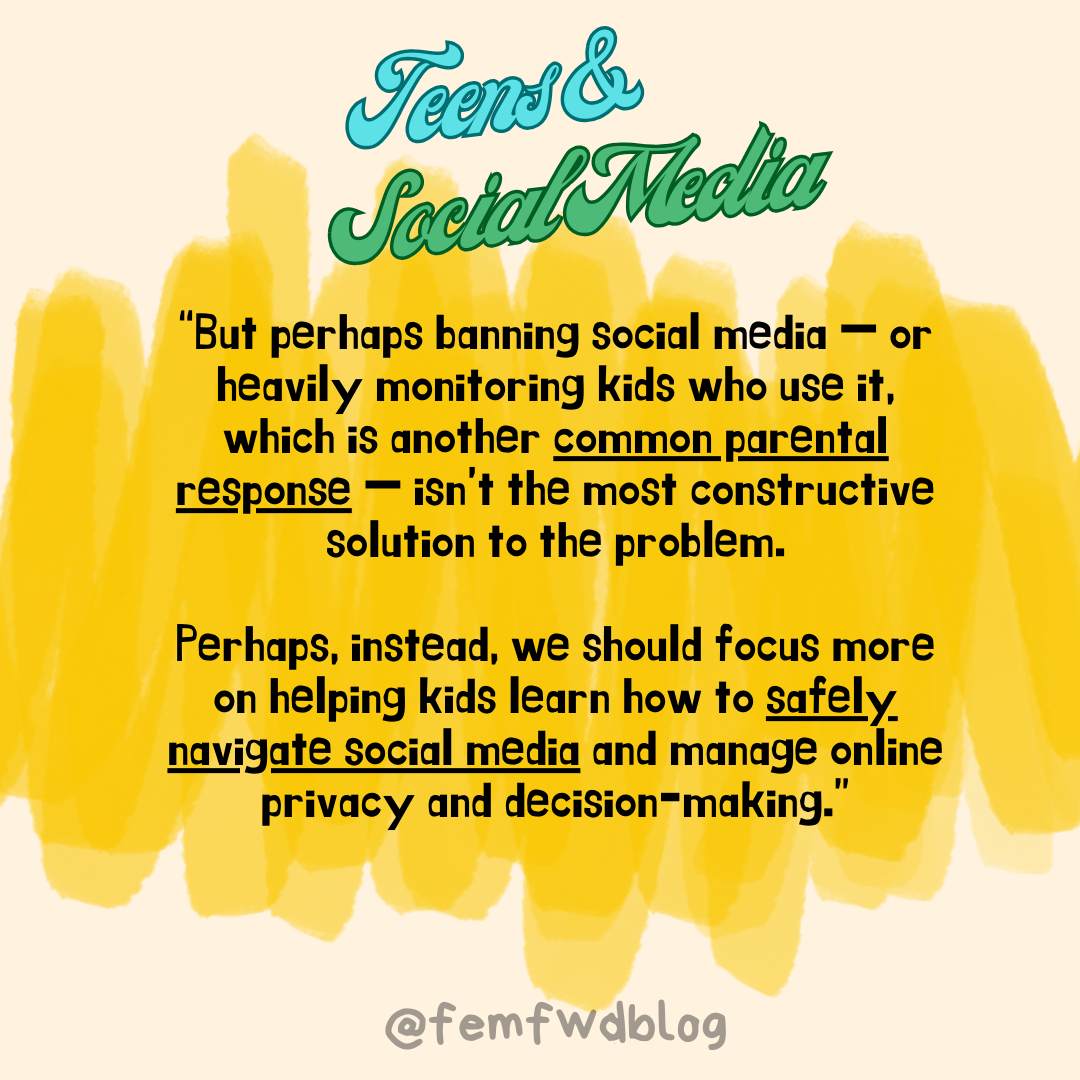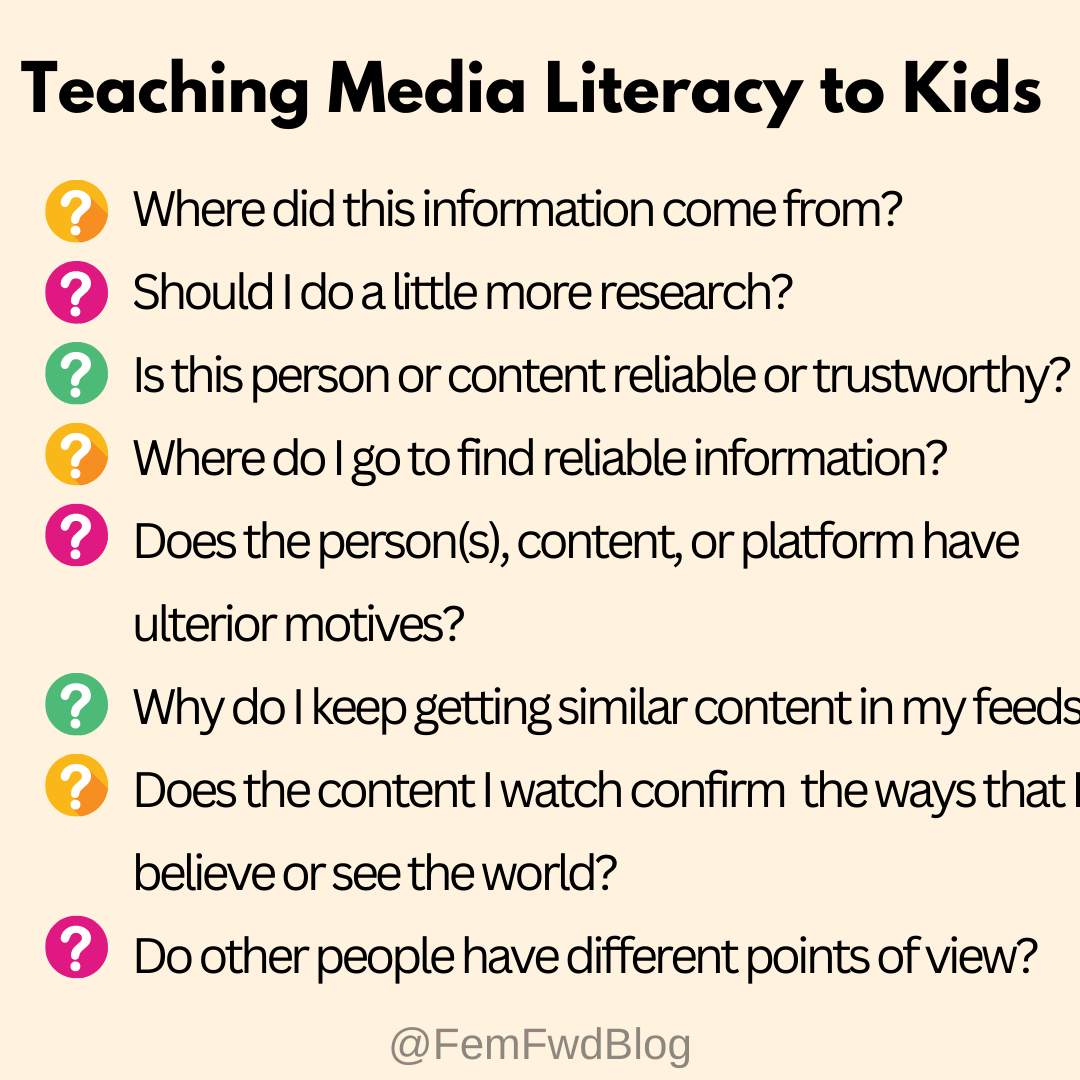Danger of Social Media: Teens and Social Media
This feels like the million-dollar question. Should parents monitor their pre-teens and teens phones and social media accounts? It feels like an invasion of privacy because it is an invasion of privacy. However, when is it justifiable? Is it ever justifiable?
If you have a strong reaction in either direction, try to hold that emotion and hang with me. Let’s be curious about this together and learn, so we all can be strategic and intentional with our parenting approach. Plus, all kids and circumstances are different; therefore, our parenting approach and decision-making may shift and change depending on the context.
Let me start with some scenarios. Evaluate your reactions to each one. Notice if they change.
Scenario #1: You find out your younger teenager is direct messaging (DM) an older adult you don’t know.
Scenario #2: Your teen is sending inappropriate sexual content and messages.
Scenario #3: You learn your teen has a second burner phone and unsure about the reason.
Scenario #4: You discover your teen is sharing that they are suicidal or self-harming to friends on their phone.
Interesting, right? Different scenario’s create different reactions. Let it help you create a pause so that you can be open-minded. When we are open, we can learn, grow, and be less likely to judge others. These scenarios are not meant to scare you, but they do stress the need to be connected and attuned to our kids, even when they are teens (especially when they are teens). They may require less supervision in comparison to the younger years. Or maybe the way we supervise just changes?
Rather than a one-size fits all approach, let’s consider adapting our parenting to our kids needs. It is important to talk with preteens and teens about being wise consumers of media information. How do we do this?
Remember those years when you taught your kid(s) potty training, the alphabet, and how to ride a bike. Some kids take to these skills quickly and some take additional time and patience. All kids are different. The same applies to teaching kids critical thinking skills about cell phones and the world of media. Our jobs are not over, yet! There is still a lot to do. Below are tools to help you actively teach kids these skills.
How to protect my child on the internet
Media Literacy
First and foremost, teach media literacy. As parents of teens, it is important to teach teens how to be wise consumers of information, while carefully validating your teens experience. If you invalidate them, they will dig their heels in more.
So, how do you carefully teach them to not believe everything you hear and see on TV or social media? From Very Well Family, Sherri Gordon eloquently wrote, “The goal of media literacy is to help kids become wise consumers of media, develop critical thinking skills, find trustworthy sources of information, and express their ideas respectfully.” It is important to teach teens, and kids for that matter, critical thinking skills and how social media platforms use algorithms that inherently promote self-fulfilling biases! It is important teach teens how to be good consumers of information, by asking the following:
Where did this information come from?
Should I do a little more research?
Is this person or content reliable or trustworthy? Where do I go to find reliable information?
Does the person(s), content, or platform have ulterior motives? Perhaps, Money? Attention?
Why do I keep getting similar content in my feeds? Does the content I watch confirm many of the ways that I believe or see the world? Do other people have different points of view?
Is there inherent bias in what people post on social media? Do people just post the good stuff?
While some of the information on social media platforms might be true, there is a lot of misinformation out there as well. Plus, the social media videos, stories, and reels are bite size nuggets (60 secs or less) of information. This means that context is lost and many complicated concepts and constructs are watering down, increasing the likelihood of misunderstanding and misinformation.
Consume information with them.
When they bring up something, talk about it with them and ask them the tough questions mentioned above.
Ask them if they know how to tell if something is credible or trustworthy?
Teach them how to tell if a source is reliable and where to look for it. Most reputable journalists and trustworthy social media content creators will share 2 sides of a story, report their sources, and/or have professional degrees.
Consider a tapered approach to social media/ internet usage
Be aware that you will not be able to monitor everything all the time. Plus, that is not the goal. The goal is to hopefully teach our children how to use cell phones and social media safely, appropriately, and respectfully.
Script: “The goal is for you to have full independence by the time you are 18. In the beginning, we/I will be limiting and monitoring your time on your device as well as deciding what apps you can be on. You will get more time and access to apps over time after we feel confident when you demonstrate how to be respectful, appropriate, and safe.”
1. Consider what apps are relevant and appropriate for your child.
Depending on your preteen or teenager, you may need to consider limiting the apps that are available to them. Therefore, you may need to do your own investigating by looking into each app (e.g., Discord, TikTok, Snap Chat, Instagram, etc.). With Instagram, be aware that people can set up “Finsta” accounts, which are “fake” Instagram accounts. Click on the hyperlink to learn more about this and how parents can watch out for it.
2. Create specified times your child/teen can be on their cell phone and/or on social media accounts.
For instance, a younger child might be on it for 30 minutes after school. While a teenage might have their device all throughout the day. However, some teens need to put their phone in another room while completing homework as well as charging in their caregiver’s room by a certain time.
3. Keep and charge devices in your bedroom at night.
While you may choose to charge devices in a common area, consider that your teen may be able to easily sneak and get it when you are asleep. It is hard to do so when it’s in your room. Just trying to help you stay ahead of potential problems 😉. So, why do professionals recommend keeping cell phones out of teens rooms at night?
There is so much research indicating the blue light from cell phones interrupts melatonin production, which helps us naturally feel sleepy and go to sleep. Plus, there is a ton of research demonstrating social media increases the release of dopamine bursts, which acts like a drug. We can become addicted to social media. Try leaving the house without your cell phone for a day. You’ll likely feel naked and anxious without it, besides needing it for people to get a hold of you.
4. Share with your preteen and/or teenager that you will be monitoring their cell phones.
While they are not likely to willfully give you consent, you are informing them of the expectations, so they are not shocked, upset, angry, surprised, etc. This is a VERY important step…please don’t skip it! If you do, your child will likely feel a sense of injustice, betrayal, and mistrust as well as some of the other feelings I mentioned above. It can easily be avoided with some proactive parenting.
Script: “We/I want you to know that while we teach you how to appropriately and respectfully use a cell phone and social media, we will be checking your phone Fill in the Blank (every day, once a week, periodically at our discretion, etc.). We will relax our rules once you demonstrate you can be safe, appropriate, and respectful, and we feel confident in your abilities. This may take several weeks to a few months.”
Once preteens and teens demonstrate safety and responsibility, then we allow more freedom and independence.
This is called scaffolding! It is the same approach we use to teach kids to talk, walk, potty train, learn to read, etc. You might consider the following options to increase autonomy.
a. Allow more time.
b. Allow access to more apps.
c. Monitor less frequently.
Social media and teenagers: There is no one size fit all to social media/internet usage
Yes, there are some exceptions to even the above recommendations. That’s why hard and fast rules are hard to live by. Plus, mental health professionals tend to live in the gray areas because we see so many caveats.
Caveat A: Sometimes teens may report that they need to reach out to their friends, which is usually in the evening or night hours, because they are worried about a friend who might self-harm or is suicidal. Here are some ways you might consider handling these scenarios.
Script: “Wow, that does sound scary. Tell me more about what is going on. (Listen: eye contact, nod, hmm, wow, okay, tell me more) It sounds like a lot of responsibility for one person, even for an adult. I am wondering if there is a way to get them some help. What are some ways we can get them some help and figure this out together? What are your thoughts about me sharing this information with their parents? School counselor?”
Having trouble talking with your teen? Check out this article.
Caveat B: Plus, your teen may also be struggling with something (i.e., death of a loved one, mental health condition) and need more appropriate access to their cell phones.
Caveat C: Because of social media, kids/teens know when they are excluded from a party, activity, or event immediately. This is devasting. Recognize and acknowledge that you have no idea what it must be like to grow up with cell phones or social media. Listen and let them share with you what it is like. It is truly a different world!
We want to listen to our kids and understand their world. We want to prevent yelling, scolding, and reprimanding. It is usually ineffective anyway! Rather, listen to them. Be curious as to why they are posting certain pictures and making certain comments. After listening, then we may have a different understanding, empathy, and approach to helping our kid(s).
Caveat D: Remember, you are their model. Therefore, it is important to model or practice behaviors you expect of your child. If you are struggling to get work done because you are constantly on your phone, please don’t yell at them when they do it too.
Caveat E: Also, be mindful of what you say out loud or what you comment on in social media. If our teen hears you say, “Wow, she looks fat,” then you are also modeling inappropriate and disrespectful behaviors.
Best parental control app iPhone
Should you choose to monitor your kids cell phone usage, make sure you to your own research. Kids are always finding loop holes to get around their parents. I am sure that you can remember finding clever ways to pull to the wool over your parents eyes. Check out this article for helping finding the app that best fits your needs.
Relationship Advice For Women
As always, thanks for reading! We are all about teaching people, especially women, who to have more satisfying relationships. Sign up for our newsletter to receive our newest blogs right to your inbox!



